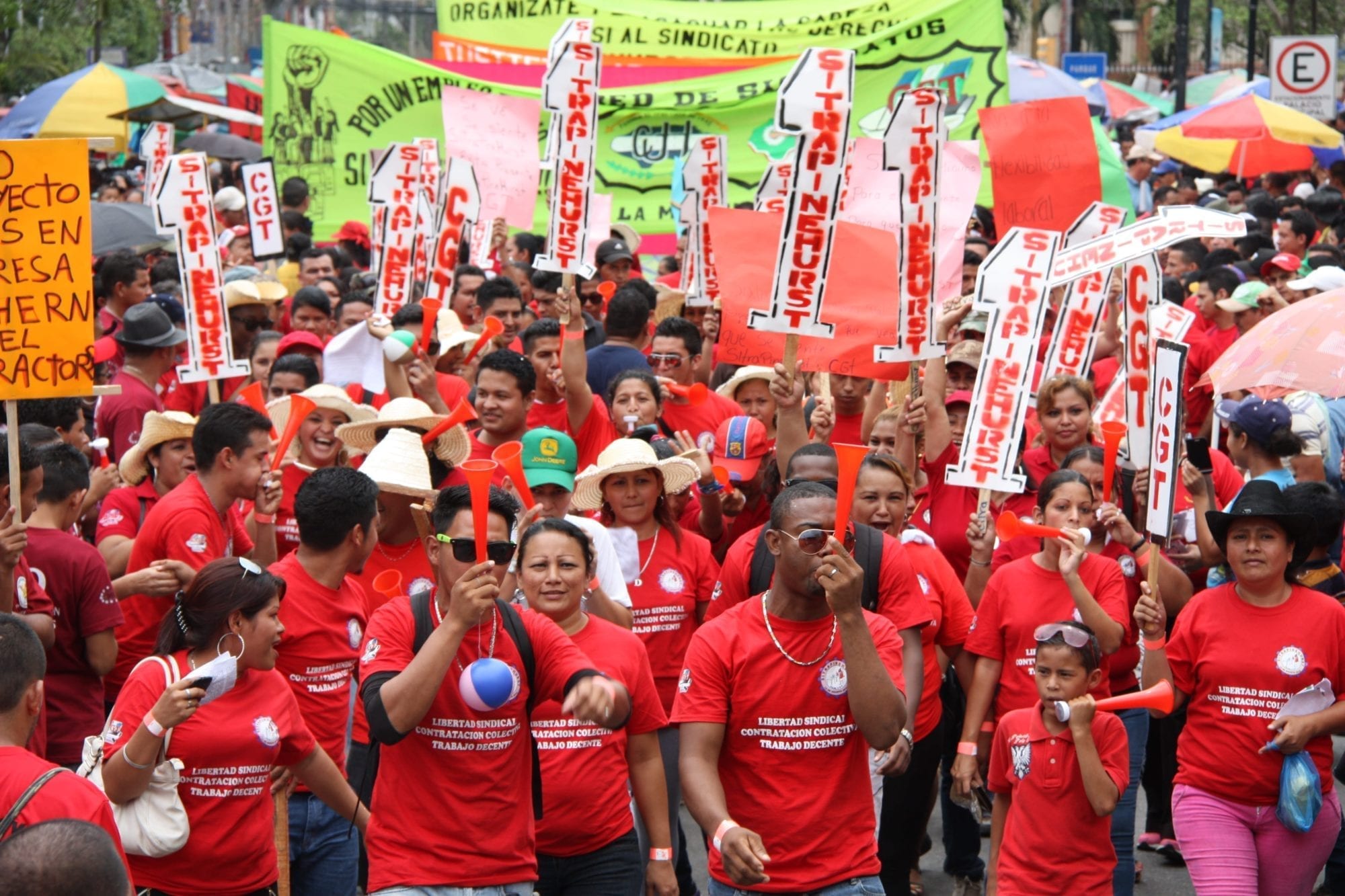Another union leader in Honduras has received death threats and a second union leader was arrested in the department of Colon during a peaceful rally protesting government corruption, according to the Honduras-based nonprofit ACI-Participa. Earlier this year, one Honduran union leader was murdered and another disappeared and is presumed dead. The latest incidents bring to nine the number of attacks on union leaders in 2015.
Isela Juarez Jimenez, president of the public employees union SITRASEMCA, began receiving death threats earlier this month and last week, her motorbike was rammed by a white Toyota, which had been following her for days. Jimenez was not injured.
SITRASEMCA has been in the forefront of opposition to government corruption and a water privatization scheme. More than half of all households in Tegucigalpa, the capital, do not have access to potable water and a plan supported by a government commission to privatize the water supply likely would make access to clean water prohibitively expensive for many residents.
Meanwhile, Heber Rolando Flores, a leader in the union representing workers of the National Agrarian Institute, was arrested and charged with sedition for taking part earlier this month in a peaceful rally in which students, workers and the public were protesting government corruption. Flores must report weekly to the Public Ministry until his court hearing.
Both Juarez Jimenez and Rolando Flores suffered physical attacks at the hands of security forces (including the National Police and the Army) as the September 1 anti-corruption rally was violently repressed by the state.
Violence against union leaders in Honduras nearly always goes unpunished, even though Honduras is under scrutiny for failure to enforce worker rights under its labor laws. The United States is waiting for the Honduran government to present a corrective plan of action to address labor rights violations, a move required after the U.S. Department of Labor’s Office of Trade and Labor Affairs last year accepted a complaint under the labor chapter of the Central American Free Trade Agreement (CAFTA).
The AFL-CIO and 26 Honduran unions and civil society organizations filed the complaint in March 2012. In a February 2015 report, the U.S. Trade and Labor Affairs office said Honduras has made virtually no progress since then.
A delegation of U.S. union leaders traveled on a fact-finding trip to Honduras late last year, where they described the widespread noncompliance with laws, including attacks against labor leaders, a lack of compliance with minimum wage laws and an unresponsive government. Based on the delegations’ findings, the AFL-CIO issued a report describing the exploitative conditions workers experienced in factories and in their communities. According to the report:
“Throughout the delegation visit, workers and community leaders spoke not only about the extreme levels of corruption, but also the increased militarization of the country, and widespread corruption among security forces and the impact it had on their daily lives.”
Many union leaders reporting threats and harassment are members of the Network Against Anti-Union Violence in Honduras, coordinated by leadership of the national labor confederations and the human rights NGO ACI-Participa, which seeks to promote respect for human rights in Honduras, encourage people to exercise their right to participate in decision-making processes and push for transparency in government and private-sector institutions charged with providing public services.

